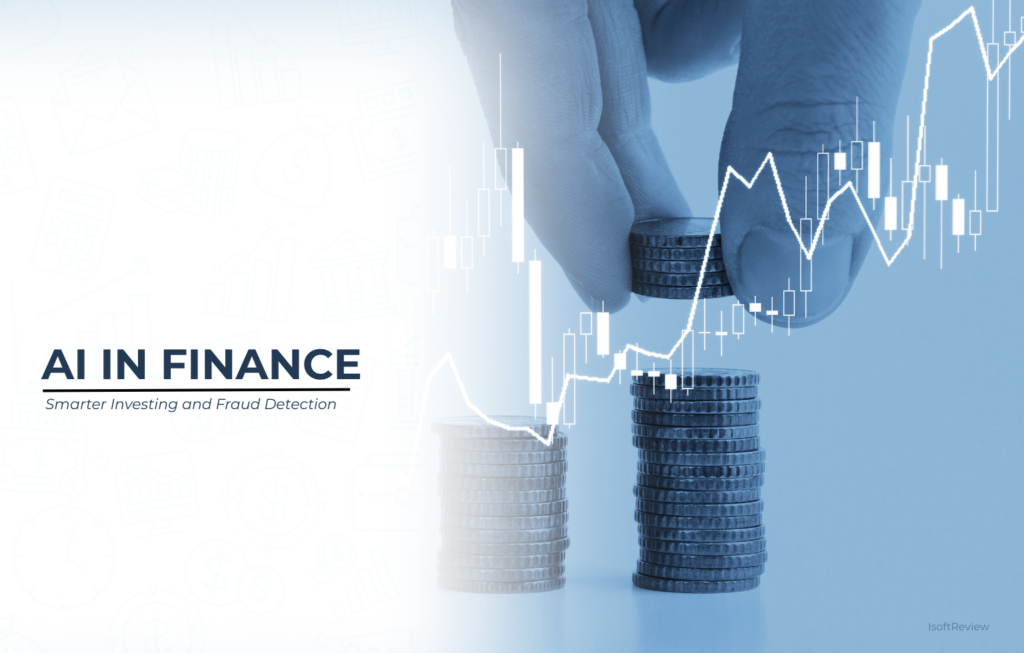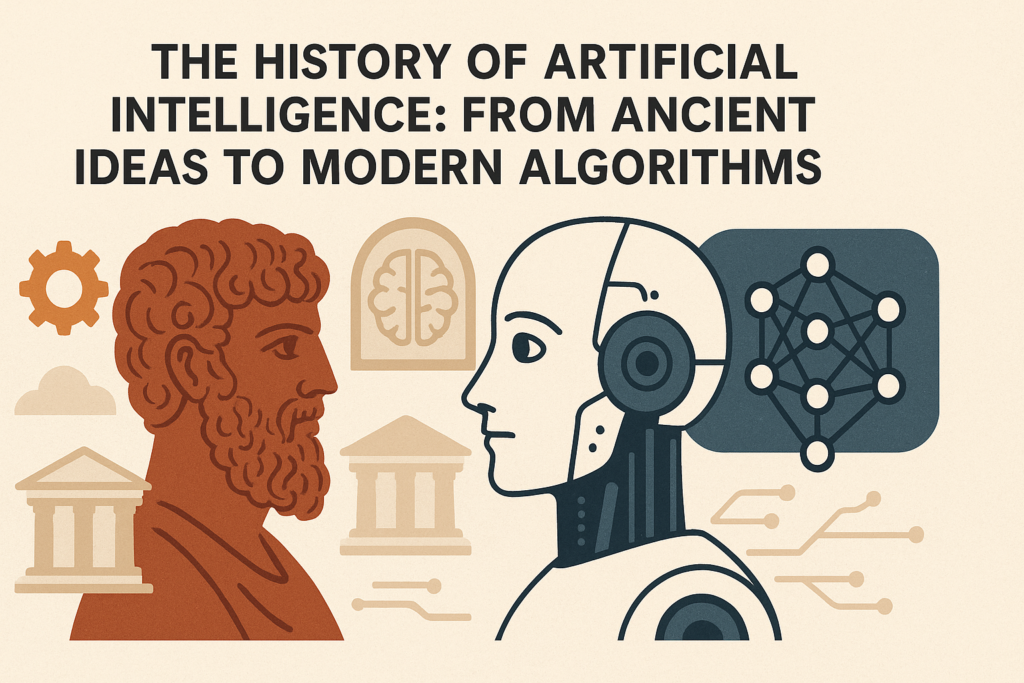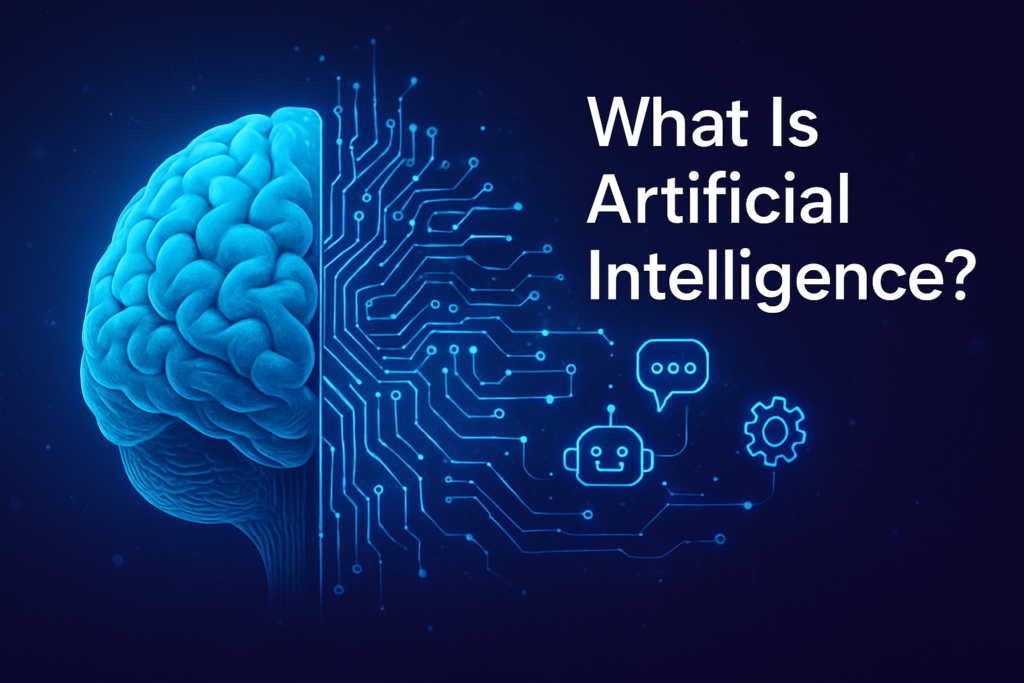AI in Finance: Smarter Investing and Fraud Detection
In 2025, AI in Finance has moved far beyond theoretical applications—it is now a foundational pillar of how the global financial system operates. From automating investment strategies to detecting sophisticated fraud schemes in real-time, Artificial Intelligence in Finance is transforming the industry with unprecedented speed and precision.
At its core, AI in Finance refers to the simulation of human intelligence by machines, enabling systems to learn, adapt, and make decisions. In the financial world, this includes Machine Learning in Finance, which powers smarter, data-driven solutions that enhance everything from portfolio management and credit risk analysis to customer service and regulatory compliance. Financial institutions are rapidly adopting AI in Banking to gain competitive advantages, reduce operational costs, and improve decision-making accuracy.
The significance of AI in Finance today lies in its ability to process massive datasets with speed and efficiency that no human analyst could match. Whether it’s spotting trends in stock markets, identifying fraudulent transactions within milliseconds through AI Fraud Detection, or optimizing investment portfolios using AI Investment tools and Algorithmic Trading, AI is delivering smarter and more secure outcomes for both businesses and consumers.
AI Investing is becoming a mainstream approach, using real-time data to guide dynamic investment decisions. These technologies—ranging from Machine Learning in Finance to Artificial Intelligence in Finance platforms—are reshaping how institutions handle risk management and customer experience.
As we dive deeper into this article, we’ll explore the various ways AI in Finance is revolutionizing the financial sector—particularly in the domains of smart investing, fraud detection through AI Fraud Detection, and risk management—while also unpacking the cutting-edge technologies that power these advancements, including AI in Banking and AI Investment systems.
The integration of AI in Finance has fundamentally changed how institutions operate, make decisions, and serve customers. By leveraging Artificial Intelligence in Finance, including technologies like Machine Learning in Finance, natural language processing, and predictive analytics, financial entities are achieving greater speed, accuracy, and efficiency in their operations.
The Role of Artificial Intelligence in Financial Services
In AI in Banking, institutions now rely on AI for customer service, AI Fraud Detection, credit scoring, and personalized financial recommendations. Chatbots and virtual assistants powered by AI in Finance handle millions of interactions daily, offering instant support and reducing workloads on human agents. For instance, JPMorgan Chase’s COiN platform uses AI Investment tools to analyse legal documents and extract vital information, saving thousands of manual hours.
In trading, Algorithmic Trading driven by AI in Finance systems is revolutionizing how market analysis and transactions happen. These platforms scan live market data, predict price movements, and execute trades in microseconds. Firms like Goldman Sachs leverage AI Investing strategies for high-frequency trading and portfolio optimization.
The insurance industry applies AI in Finance to automate claims, conduct AI Fraud Detection, and generate dynamic pricing using real-time data. Fintech startups also use Machine Learning in Finance to disrupt traditional models, offering smarter tools in lending and AI Investment. Companies like Zest AI and Upstart use AI algorithms for enhanced credit evaluation, extending services to underbanked communities.
Understanding Artificial Intelligence in Finance reveals its growing role in improving operations and customer experience. As AI in Banking evolves, it’s reshaping finance into a more responsive, secure, and intelligent system—driven by the potential of AI in Finance.
AI for Smarter Investment Decisions
Algorithmic Trading, often referred to as algo-trading, involves using computer programs to execute trades based on pre-defined strategies and market conditions. While once exclusive to large institutions, AI in Finance is now democratizing this field, enhancing speed, precision, and adaptability for a wider range of investors.
Traditionally, trading algorithms followed fixed rules. Today, Artificial Intelligence in Finance allows systems to learn from real-time and historical data, evolving their strategies automatically. By using Machine Learning in Finance, AI-driven platforms analyse vast datasets—price histories, trading volumes, economic reports, and even social media sentiment—to identify profitable opportunities and manage risk with remarkable accuracy.
A key advancement in AI in Finance is stock market prediction. AI models, especially deep learning systems, are trained to forecast both short- and long-term price movements. These systems evaluate thousands of variables to determine how events like earnings reports or geopolitical news might influence the markets. This level of insight was previously unimaginable without AI.
Several platforms are now bringing AI Investment and Algorithmic Trading capabilities to individual and institutional traders. MetaTrader 5, for example, enables integration with AI scripts for automated trading. Similarly, Alpaca provides commission-free APIs, letting developers build and deploy AI in Finance bots that operate in live markets.
By combining AI Investing with Algorithmic Trading, traders benefit from execution speeds in milliseconds, enhanced decision-making, and real-time adaptability. These tools reduce emotional bias and help maintain consistent, data-driven strategies that adapt as market conditions change.
The role of AI in Finance also extends into AI Fraud Detection and compliance, ensuring that trades remain secure and within legal boundaries. Moreover, in AI in Banking, similar AI systems are streamlining operations, improving customer experiences, and refining risk management protocols.
As the financial sector becomes more data-driven, the fusion of AI in Finance with Algorithmic Trading will continue to revolutionize how trades are executed and strategies are developed. With improved precision, speed, and intelligence, AI Investment tools are redefining the future of finance for everyone.
AI in Fraud Detection: Combating Financial Crimes
Fraud detection is a critical function in today’s financial ecosystem, designed to prevent identity theft, credit card fraud, insider trading, and money laundering. As financial systems grow more complex and digitized, traditional techniques are no longer sufficient—making AI in Finance an essential tool in combating financial crime.
AI Fraud Detection has rapidly become a frontline defense mechanism. Unlike static, rule-based systems, Artificial Intelligence in Finance uses dynamic algorithms to analyze billions of transactions in real time. These AI-driven platforms detect anomalies, identify suspicious behavior, and instantly flag high-risk activities—transforming the way institutions approach fraud prevention.
Within AI in Banking, machine learning plays a pivotal role in real-time fraud detection. For example, if a credit card is suddenly used in a foreign country or for unusual purchases, Machine Learning in Finance algorithms can immediately recognize the abnormality, block the transaction, and alert the customer—all within seconds.
What makes AI in Finance powerful is its self-learning capability. These systems continually evolve, becoming more accurate with every transaction processed. This not only reduces false positives but also ensures financial institutions stay ahead of increasingly sophisticated fraud attempts.
Leading fintech and banking institutions are integrating AI Fraud Detection into their security architecture. Tools like Darktrace apply AI in Finance to detect cyber threats and prevent transactional fraud in real time. Feedzai monitors payments across digital, mobile, and in-person channels using Artificial Intelligence in Finance, while FICO Falcon evaluates billions of global transactions for fraud prevention.
Additional top AI tools for fraud detection include:
- Kount – designed for e-commerce fraud prevention
- SAS Fraud Management – robust cross-channel detection platform
- Zimperium – mobile-focused threat intelligence system
These technologies are powered by AI in Finance to offer more secure and adaptive financial services.
As AI in Banking becomes more integrated, customer trust and satisfaction rise—thanks to faster, more accurate, and seamless fraud detection. Whether it’s protecting personal accounts or monitoring institutional risk, AI Investment in fraud protection is no longer optional—it’s a competitive necessity.
With the rise of Algorithmic Trading and digital payments, the financial world is becoming more data-intensive. That’s why the role of AI in Finance is expanding, shaping a future where financial safety, transparency, and efficiency go hand-in-hand.
Risk Assessment and Financial Analysis with Machine Learning
The role of AI in Finance has become increasingly critical as financial institutions adopt Machine Learning in Finance to enhance risk analysis and decision-making. By processing massive datasets and identifying hidden patterns, Artificial Intelligence in Finance is reshaping how risks are detected, quantified, and managed.
In credit scoring, machine learning models analyze far more variables than traditional systems. Beyond historical repayment records, these models incorporate real-time behavioral data, transaction history, employment trends, and even social signals. This advanced approach enables AI in Finance to deliver more accurate, inclusive credit risk assessments, helping banks better serve underbanked or thin-file customers.
Default prediction is another area where AI in Finance shines. By evaluating payment history, economic indicators, customer profiles, and spending behavior, AI-powered systems forecast which borrowers might default on loans or credit obligations. These insights allow lenders to take proactive measures, such as restructuring loans or adjusting credit limits, thereby reducing losses.
Capital allocation also benefits from Machine Learning in Finance. AI tools assess risk-return profiles of investments across sectors and geographies, helping institutions optimize portfolio allocations while ensuring regulatory compliance. This application of AI in Finance supports more strategic and data-driven capital management.
Additionally, Artificial Intelligence in Finance is revolutionizing auditing and compliance. AI-powered systems can scan thousands of documents, detect inconsistencies, uncover signs of financial misconduct, and ensure adherence to evolving regulations. This automation reduces errors and slashes the time and cost associated with traditional audits.
As regulatory scrutiny grows and financial systems become more complex, AI in Finance and Machine Learning in Finance will be vital for maintaining stability and managing uncertainty. These technologies empower financial firms with the intelligence needed to stay ahead in an increasingly data-driven world.
Challenges and Ethical Considerations
While the rise of AI in Finance offers transformative benefits, it also introduces significant challenges and ethical concerns that financial institutions must address carefully. One of the most critical issues is bias within AI models. Since Machine Learning in Finance relies heavily on historical data, these systems can inadvertently perpetuate existing biases. This may result in unfair credit scoring, discriminatory lending, or skewed AI Investing decisions—impacting millions of consumers and investors.
Data privacy is another pressing concern in the world of Artificial Intelligence in Finance. Financial organizations process massive amounts of sensitive personal and transactional information. The increased data volume and complexity brought by AI systems require strict adherence to regulations like GDPR in Europe and the DPDP Act in India. Failure to protect customer data not only risks legal penalties but also erodes trust, which is fundamental in AI in Banking.
A related challenge is the opacity of “black-box” AI models, which deliver results without transparent explanations. This lack of interpretability complicates accountability in finance, where stakeholders need clarity on decisions such as loan approvals or fraud detection. To address this, the field is moving toward explainable AI solutions that aim to make AI in Finance systems more understandable and trustworthy.
Regulators worldwide are increasingly focused on ensuring fairness, transparency, and accountability in AI-driven financial decisions. Policies are evolving to mandate clearer guidelines and auditing standards for AI applications in finance, from AI Fraud Detection to Algorithmic Trading.
As the financial sector innovates, balancing rapid technological advancements with ethical responsibility will be crucial. Embracing ethical AI practices will help institutions build sustainable and trusted systems that protect consumers, enhance financial inclusion, and drive smarter AI Investment strategies.
In summary, addressing bias, ensuring data privacy, improving transparency, and complying with regulations are key pillars for responsible AI in Finance adoption—laying the groundwork for a fairer and more secure financial future.
The Future of AI in Finance: What’s Next?
Looking ahead, the future of Artificial Intelligence in Finance is more promising and transformative than ever before. Financial institutions worldwide are expected to accelerate the adoption of AI in Finance, leveraging it not only to improve operational efficiency and decision-making accuracy but also to secure competitive advantages in a rapidly evolving market landscape.
One of the most exciting frontiers for AI in Finance lies in decentralized finance (DeFi). Here, AI algorithms are being integrated into smart contracts to automate complex financial activities like lending, yield farming, and liquidity provisioning without intermediaries. When combined with blockchain technology, Artificial Intelligence in Finance offers unparalleled transparency, speed, and security, ushering in a new era of trustless finance.
Beyond DeFi, AI in Banking will continue to enhance customer experiences through hyper-personalization, delivering tailored financial products and services. This aligns with broader trends in AI Investing and AI Investment, where intelligent systems analyze vast data sets to optimize portfolios and identify emerging market opportunities.
As technologies like Machine Learning in Finance and Algorithmic Trading mature, the financial sector must also adapt culturally and strategically. Continuous workforce upskilling, embracing agile innovation frameworks, and prioritizing ethical AI practices will be critical. Transparency and explainability in AI systems will remain essential, especially as machines increasingly take on vital decision-making roles in risk management, fraud detection, and regulatory compliance.
Ultimately, the success of AI in Finance will depend on the harmonious integration of human expertise and advanced machine intelligence. This collaboration promises to build a more inclusive, efficient, and intelligent financial ecosystem that benefits institutions and consumers alike.



